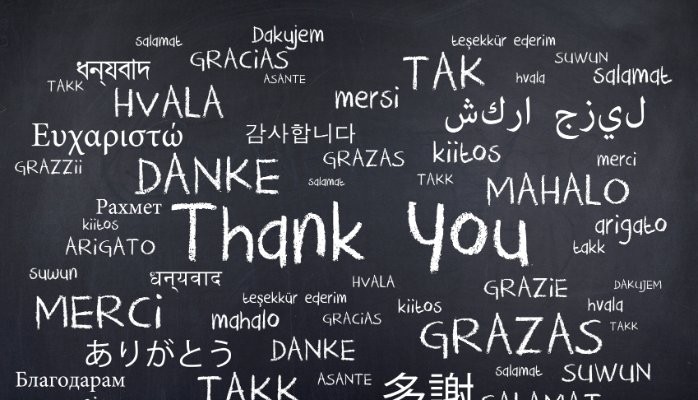Want an engaged workforce? Get better at giving thanks!

Before traveling to a foreign country, I learn the local phrase for “thank you.” Taking that simple step inevitably leads to great service, whether I’m trying to find the nearest Pilates class, attempt not to look like a dork (too late for that) while sight-seeing or convince a chef to make the perfect egg white omelet. The same is certainly true in business. If you are looking to improve employee engagement, expressing thanks goes a long way in creating a motivated workforce.
This became crystal clear to me recently while conducting focus groups with the employees of our $2 billion supply chain management cooperative. Our nearly 1,700 team members are dispersed between headquarters, seven distribution centers and 32 trucking hubs throughout the U.S. No matter who I talked to, people felt a lot more motivated when their hard work was noticed – and the absence of gratitude lead to a sense of disconnection.
That should be a given, right? Especially if your momma taught you good manners. But sometimes people get so caught up in our non-stop, 24/7 world that they forget to think about how their actions (or non-actions) impact others. That’s why I am sharing three ways to get better at thanking the individuals you work with:
1) Say it when you think it. How many times have you thought someone delivered outstanding service, but didn’t take the time to tell them? Most of us aren’t former members of the Psychic Friends Network (the pinnacle of cheesy 1990’s infomercials), which means we can’t read your mind. Taking 15 seconds to say “we can always count on you to process our expense reports quickly” or “thanks for your hard work in helping our customer solve a problem with their delivery today” makes an impression. Especially when you serve in a supervisory capacity with that individual or the company overall.
2) Pay attention to the details. You can tell someone that they rock at work. But going into detail about the WHY – your idea for a product reformulation saved the company $400,000, the sales presentation you created over the weekend helped us land a huge account – makes the gratitude expressed more meaningful. This focus is effective in one-on-one conversations and also on a big scale. For example, InterContinental Hotels Group, a former consulting client of mine, has a terrific employee recognition program called BRAVO that lets team members recognize their peers, direct reports, supervisors and just about anyone in the organization. The more specific information submitted about why someone deserves this honor increases the chance of people receiving national recognition and prizes.
3) Be proactive. Look for the shining examples of excellence around you and let the world know about it. My husband came down with a bronchitis-type sickness recently and given that it was a Saturday, reluctantly headed to the local drug store medical clinic for treatment. But the nurse practioner running the place was outstanding and turned out to be a lot more on the ball than his regular doctor. After telling everyone about his good experience, Justin realized he needed to be more proactive in getting her recognized. So he called the Walgreen’s branch, got the practioner’s name, and wrote a heartfelt thanks to their customer service department that no doubt will impact her annual review and hopefully more. Pause for a moment to do the same at work. Let those rock stars in the warehouse, IT, marketing, human resources or any department know that you noticed in writing and copy their supervisor in the process. Tell communications so these people can get recognized in the employee newsletter and Intranet site. Spread the thanks, and you’ll be amazed at how it boomerangs right around into happier people and a better place to work.
When is the last time you expressed thanks at work? What impact did it have on others?
